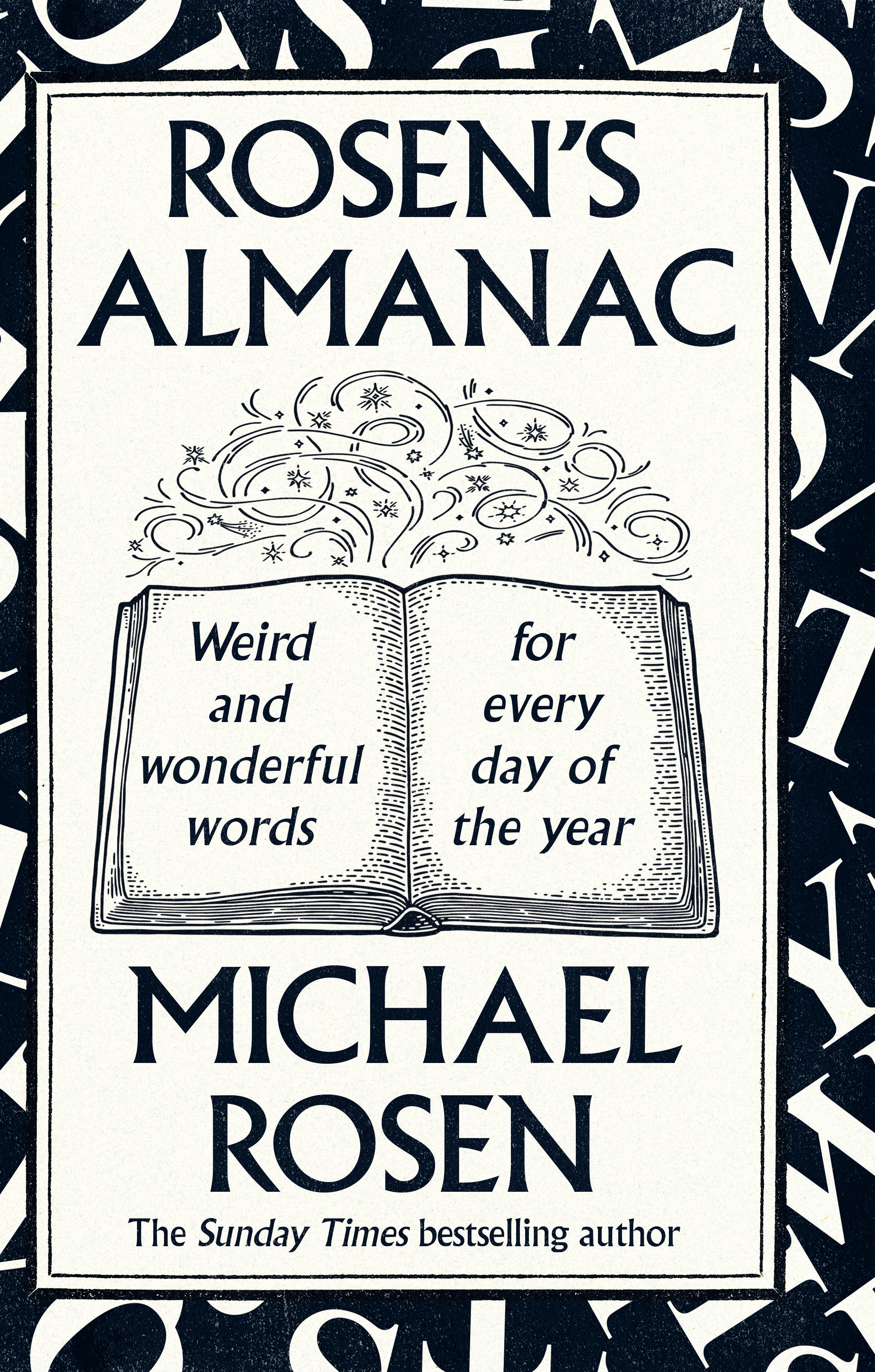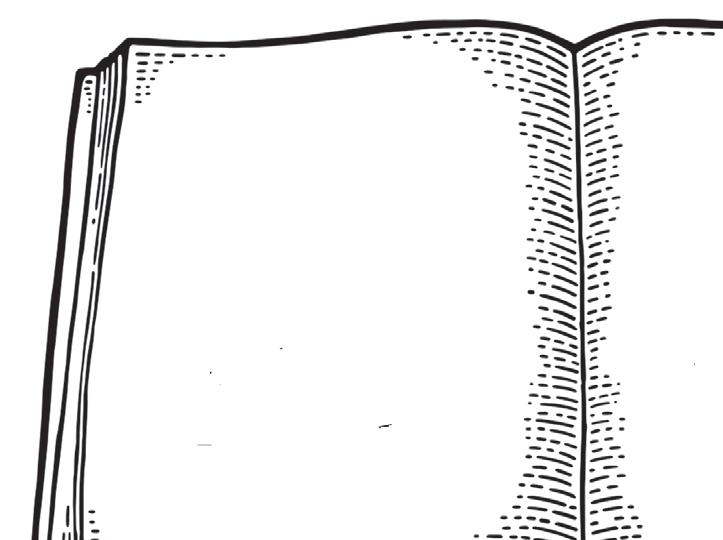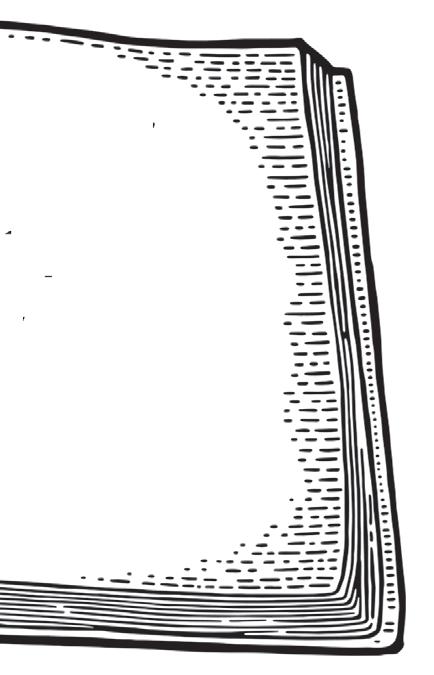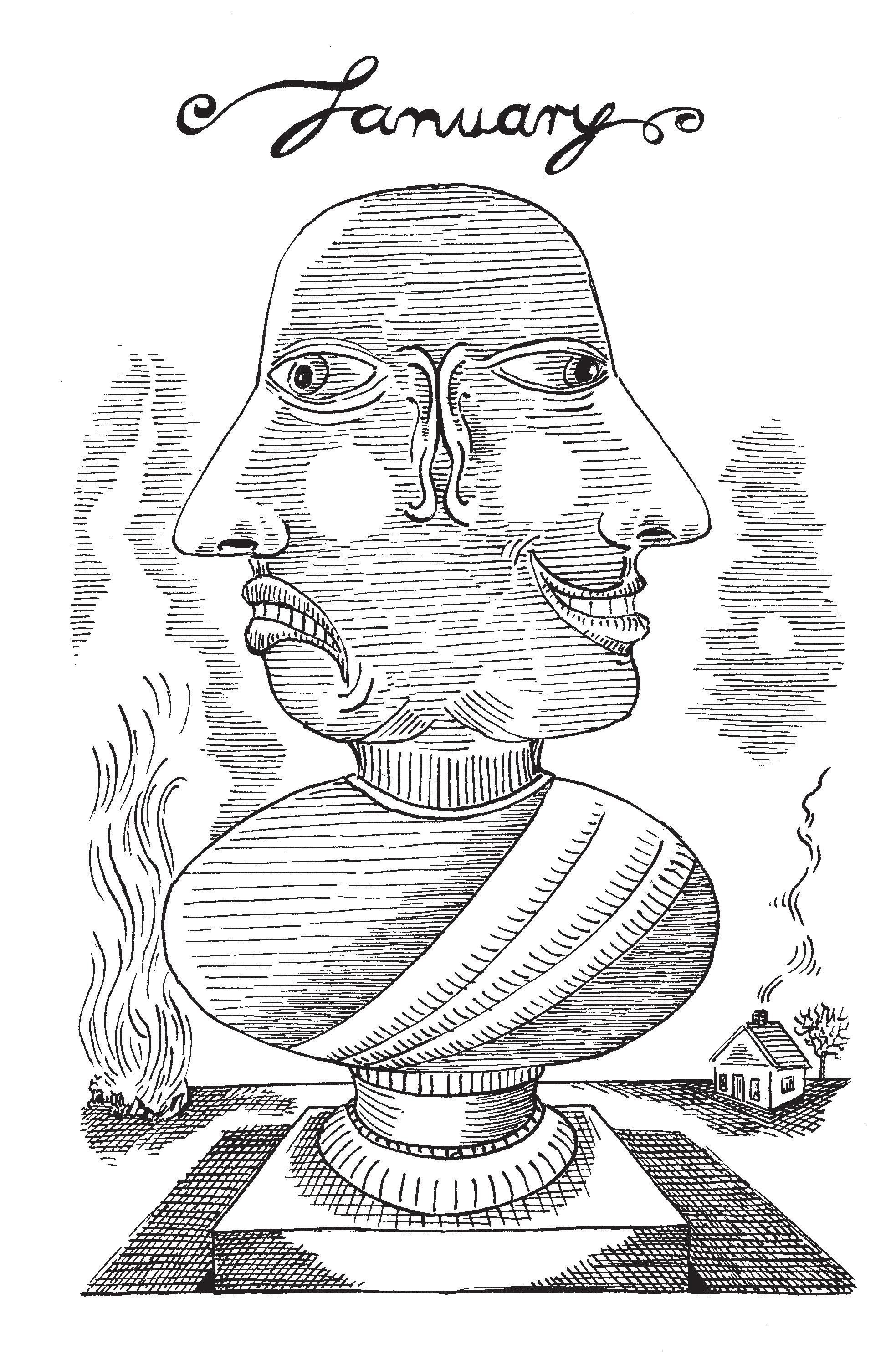




















every day of the year and wonderful words for every





Ebury Press, an imprint of Ebury Publishing One Embassy Gardens, 8 Viaduct Gdns, Nine Elms, London SW11 7BW
Ebury Press is part of the Penguin Random House group of companies whose addresses can be found at global.penguinrandomhouse.com
Copyright © Michael Rosen 2024 Illustrations © Andrzej Krauze 2024
‘Another Christmas Poem’ by Wendy Cope © Wendy Cope and reproduced with the kind permission of Faber & Faber
Michael Rosen has asserted his right to be identified as the author of this Work in accordance with the Copyright, Designs and Patents Act 1988
Every effort has been made to trace and contact copyright holders, but if there are any inadvertent omissions, please contact us in order to rectify any mistakes that are brought to our attention.
No part of this book may be used or reproduced in any manner for the purpose of training artificial intelligence technologies or systems. In accordance with Article 4(3) of the DSM Directive 2019/790, Penguin Random House expressly reserves this work from the text and data mining exception.
First published by Ebury Press in 2024 www.penguin.co.uk
A CIP catalogue record for this book is available from the British Library
ISBN 9781529148916
Printed and bound in Great Britain by Clays Ltd, Elcograf S.p.A.
The authorised representative in the EEA is Penguin Random House Ireland, Morrison Chambers, 32 Nassau Street, Dublin D02 YH68.
Penguin Random House is committed to a sustainable future for our business, our readers and our planet. This book is made from Forest Stewardship Council® certified paper.
For Emma
Welcome.
Are we who we are because of what other people say to us and what we ourselves say? It seems like it, though we would have to factor in what others ‘do’ to us and what we do too.
We looked at this on BBC Radio 4’s Word of Mouth, the programme I present. I put out a request on social media as follows:
Coming up on Word of Mouth : inherited words and phrases.
We want to hear the word or phrase you’ve inherited from someone, family or friend, for a special edition featuring your stories! Tell us the bit of language you’ve picked up and who, where and when it came from!
We had over 1,600 replies.
On the programme itself, I talked to Rob Drummond, Professor of Sociolinguistics at Manchester Metropolitan University and author of You’re All Talk: Why We Are What We Speak.
Our conversation set me thinking about how we understand language. It’s fairly easy to pull bits of language away from people and look at these bits as if they are things we can put under a microscope. We can even talk of language as if it’s a thing that can do things to us. I might hear myself say, echoing my days at school, ‘English keeps the verb next to the subject of the sentence’ (meaning that we say or write things like ‘I wandered lonely as a cloud’ where ‘I’ is the ‘subject’ and ‘wandered’ is the verb). But actually it’s not ‘English’ doing that, it’s us! We are the speakers and writers.
What follows, then, is a collection of examples of living language – the poetry of the people, if you like. The spine of the book consists of the words and phrases that people (including me) remember from home and friends. I use a clumsy phrase to describe this: ‘language-in-use’ to distinguish it from neat, cold language on its own.
We use these home words and phrases as part of our lives, in nearly all our activities and even in a lot of our thought. Yes, we are what we eat, but we are also what we speak, hear, write and read. And yet in saying that, I’m surely missing out a dimension: all that language, all those uses, have histories. There are the immediate histories of who told us these words and expressions. Then, like our family trees, those words and expressions go back through our families and the societies our ancestors lived in for hundreds and thousands of years.
Thanks to the great Oxford English Dictionary, a dictionary based on quotations of words in context, we can and should keep in focus the fact that those ancestral words and expressions were said and heard, written and read by real people in real situations. No matter how many books are written about language, we should always remember that language is ours. We make it for our purposes.
That’s why this book wanders about all over the place, full of hundreds of examples, quirks and surprises. In that, I hope it’ll remind you that how we use language is not a simple, regular process any more than identity, behaviour or culture are simple, regular processes.
As the book is an almanac, you can use it like a calendar if you want. Now that many of us have become expert at surfing, you can be non-chronological and surf it too. This way of reading and particularly the sheer amount of it has expanded one way in which we get knowledge: we create
our own networks and pathways between the topics we surf. Perhaps this is changing how we think?
I can hear in my head people using the word ‘browsing’ as if it’s trivial or, at best, the starters that come before the main meal of solid reading. If you dip in here (as I do with my hummus), rest assured I won’t be looking over your shoulder making demands that you read in any other way. Quite the contrary. How about another axiom? We are the links we make.
And one final note. You will come across some Yiddish words and expressions in the book. They are spelled that way because there is a standardised way of spelling Yiddish when using Roman letters. This is called ‘transliteration’ because Yiddish is traditionally written using Hebrew letters. You can find the standardised transliterations in YIVO’s Modern English-Yiddish Yiddish-English Dictionary , first published in 1968. YIVO is an acronym based on ‘yidisher visnshaftlekher institut’, which was founded in 1925 in Poland before the Holocaust forced its relocation to New York in 1940. There are many non-standardised ways of writing Yiddish that people make up, improvise or have learned from someone else. I have no problem with these but as I’m learning Yiddish, I’m doing my best to conform to what I’m being taught. It’s a little bit like the variety of spellings that we find in Shakespeare’s time – full of improvisation and invention.
What is an almanac? And where does the word come from?
One of the first people to use the word ‘almanac’ in writing was Geoffrey Chaucer. He wrote several books other than The Canterbury Tales, one of them being A Treatise on the Astrolabe , which was completed in 1391. Mostly people haven’t
found the Treatise as much fun as The Canterbury Tales as it doesn’t have stories of talking chickens or people having sex up a tree. However, in the Treatise, Chaucer writes: ‘A table of the verray Moeuyng of the Mone from howre to howre, euery day & in euery signe, after thin Almenak.’ In modern spelling, this translates to: ‘A table of the very moving of the moon, from hour to hour, every day and in every sign, after thine Almanac’ (‘after thine’ meaning ‘according to your’).
If you think that the word ‘almanac’ doesn’t sound or look like a word of Germanic or Latin origin, you’d be right, just as you would for hundreds of other words in English – for example, pyjamas, robot, shampoo, thug, caravan, hammock, ketchup and tattoo.
The Oxford English Dictionary (OED) suggests that the word was first used in English from Old French and/or what the OED calls ‘post-classical Latin’ (the Latin spoken or written after Roman times). And, burrowing still deeper, those Old French or Latin speakers and writers took ‘almanac’ from people speaking and writing ‘Spanish Arabic’. ‘Al’ meant ‘the’ and ‘manāk’ meant ‘calendar’. These pathways speak of merchants and scholars moving about medieval Europe, exchanging goods and ideas. Chaucer himself was a great borrower – The Canterbury Tales hums with the stories, scenes, ideas, language and literary forms from worlds way beyond England. Language and culture are hardly ever monocultural.
Clearly, you don’t have in your hands something that is only or simply a calendar. People started calling this kind of book an almanac too, in the first part of the nineteenth century, and by the early twentieth you could buy The Motorists’ Almanac for 1917 Anno Domini: Containing Much Entertainment and Not a Few Facts of Concern and Interest to All Intelligent Motorists.
So what follows is indeed an almanac and I hope you’ll find that it’s ‘containing much entertainment and not a few facts of concern and interest to all’ … whoever you are.
But before we dive in, let’s consider for a moment the origins of our names for the days of the week. In Roman times, the days were named after the classical planets of ancient Greek astrology, in this order:
Sun (Helios) – Sunday
Moon (Selene) – Monday
Mars (Ares) – Tuesday
Mercury (Hermes) – Wednesday
Jupiter (Zeus) – Thursday
Venus (Aphrodite) – Friday
Saturn (Cronus) – Saturday
This has worked out for us like this:
– Sunday is sun day and is an English translation of the Latin phrase diēs Sōlis – day of the sun.
– Monday is moon day and is equivalent to the Latin name diēs Lūnae – day of the moon.
– Tuesday is Tiw’s day or Tyr’s day. The Old English god Tiw or the Norse god Tyr was a one-handed god associated with war. The name of the day is related to the Latin name diēs Mārtis – day of Mars (the Roman god of war).
– Wednesday is Woden’s day. Woden was the chief god in the pagan Germanic pantheon.
–
Thursday is Thor’s day. Thor was the god of thunder and this relates to Latin diēs Iovis – day of Jupiter (the Roman god of thunder – amongst other things).
Friday is the day of the pagan Germanic goddess Frigg. It relates to Latin diēs Veneris – day of Venus (goddess of love, beauty, sex and fertility).
–
Saturday is named after the Roman god Saturn. In Latin, it was diēs Sāturnī – day of Saturn.

1It can seem strange that some of our most familiar words hold within them threads that pull us back hundreds and thousands of years. That’s an obvious thing to observe when we use, say, a Latin phrase like ‘ad nauseam’ – but hiding in the word ‘January’ is a link to a Roman god. As we shall see, we surround ourselves with ancient deities in our months, festivals and days of the week. A Martian might think we were secret pagans.
Janus is the god behind January. Statues of this Roman god show him to be two-faced – not in the sense of being duplicitous and deceitful, but in the sense of being both beginning and ending. He was the god who oversaw the ends of wars and conflicts: the god of war and peace then.
Traditionally, in ancient Rome, his image was mounted on gates or on walls so that he could look both outwards and inwards, forwards and backwards. So he’s a perfect god for the New Year, as he can look back at the old year and forwards to the new one.
The name Janus comes from a word meaning ‘door’ –which we preserve to this day in the word ‘janitor’ and the Scots version ‘janny’.
The Romans called January ‘Ianuarius’ and the people who spoke Old English (inaccurately called the ‘Anglo-Saxons’), would write ‘ianuarius’ next to the Old English word ‘æfterra geola’. If that looks unlike anything you’ve ever seen before, it is in fact ‘after yule’ (the ‘g’ at the beginning of ‘geola’ is pronounced as a ‘y’).
In case you’re wondering how the Latin ‘I’ at the beginning of ‘Ianuarius’ became a ‘j’ then think of 1066. The Norman French arrived at Hastings saying ‘Janver’ (with a hard ‘j’
sound as in ‘jug’). This also explains why we say ‘justice’ not ‘iustice’ and ‘judge’ not ‘iudge’.
To kick off this trip round our family sayings, let me rudely begin with some of my own. Have you noticed that when you dwell on the things your parents, grandparents and perhaps great-grandparents said, you are taken straight back to the sounds, smells and textures of the people, the rooms and the places where these things were spoken? Famously, Marcel Proust talked of how a little madeleine cake could feel as if it transported him back so we now talk of ‘madeleine moments’. We could call these family sayings ‘madeleine sayings’.
Here are some sayings that the Rosen family always comes back to:
–
–
‘It’s clearing from the east.’ From camping holidays spent waiting for the rain to stop. This became the thing to say when quite clearly it was the opposite – pouring with rain, cloud cover everywhere.
‘Have a bagel. Save the hole for me.’
My zeyde’s (grandfather’s) gag.
– ‘Never believe a rumour till it’s officially denied.’
One of my father’s political sayings.
– ‘The bigger the car, the bigger the bugger.’
One of my father’s motorist’s sayings.
3
‘A few sayings of my dad’s, who was from Staffordshire:
–
–
“He called him everything bar a Christian” (describing someone’s angry response to another’s careless/reckless action).
“They’d have given you that at the Bricklayer’s” (any near miss – his equivalent of “close but no cigar”, referring to his old local).
–
–
–
“If I was in bed I wouldn’t get up for no dinner” (whenever he was feeling particularly comfy).
“The doctor says I can get up a bit tomorrow” (whenever anyone asked how he was).
“One volunteer is worth a dozen pressed men” (when he was looking for me to give him a hand with something).’
Ian Allen
4
My brother once tried to buy some hankies in July and the person serving said, ‘We’ve got no call for hankies in summer.’ After that, he used it for whenever you couldn’t get something from a shop – or from anywhere else.
5
A saying that reminds me I was often in trouble:
The deputy head, Harrow Weald County Grammar, 1958 or so (she was born in the 1890s), said in a dee p ly
shocked, almost whispered voice: ‘Great Scott, boy! You’re for the high jump!’
It has been imported into family sayings ever since.
6
My father had a sliding scale of bother from a little to a lot for when he was complaining about the work he hadn’t done:
– ‘Oy am I in tsirres!’ (a little bit of bother)
– ‘Oy am I in shtuck!’ (quite a lot of bother)
– ‘Oy am I in dr’erd!’ (in really a lot of bother)
But the worst and without the ‘oy’: ‘I’m in mittendrinen!’ (total bother).
It’s been a useful guideline my whole life.
7
Many things in my father’s life seemed to revolve around his ‘kishkes’ (Yiddish for guts). ‘I’m not going to bust my kishkes doing that’; ‘since that meal, I’ve had nothing but trouble with my kishkes’; ‘my kishkes are killing me’; and for a big emotional event – ‘I felt it in my kishkes.’
8
When we meet each other, the first thing we do is say greeting words like ‘Hi’, ‘How you doing?’, ‘Alright?’ Some of them, like ‘Alright?’ are fine examples of how language is more than communication. We can’t understand what we do with language if we think that every word we use has a neat
boxed-up meaning which we transfer across to someone else who then opens the box. When I meet people on the street, we often say to each other, ‘Alright?’ but we’re not usually communicating a concern or an interest as to whether the other person is actually alright. It’s more of an affirmation that we know that we’re friendly acquaintances. In this way, ‘Alright?’ doesn’t mean ‘Are you alright?’ That’s not what we’re communicating.
Our unique family greetings make for fascinating reading. Here’s one of my own:
My bubbe (Yiddish for granny) would say when we visited, ‘Tatele, come to Bubbe!’ (tatele literally means ‘little dad’). When I say that, I can see the door to the flat, the look and smell of her purple cardigan, her long and loose silver hair (not like my friends’ grannies’ hair), and the perpetual look of seeming sadness, as if the world had been put together the wrong way round.
9
‘My mother had some imaginary “ice breakers”: – Which end of the bath do you sit?
– We’ve got a breadmaking machine at home.
– I hear they’ve had snow in Northampton.’
@richmondie
‘My grandad used to say to us kids when we visited: “Come here, you pickled cabbage-faced article”, which basically meant: come and give me a hug. No idea where it came from!’
@DebMacc
I’m studying Yiddish and we begin every class with ‘Sholem aleykhem’, to which the proper reply is ‘Aleykem sholem’. That’s followed by ‘Vos makhstu’, which means literally ‘what are you doing?’ but – like someone saying to you as you pass them by, ‘Alright?’ – you don’t answer by saying what you’re doing! The answer to ‘Vos makhstu’ is to say how you’re feeling – OK, or a bit tired.
I’ve heard teenagers playing with phrases in similar ways: ‘Sup!’ (i.e. ‘what’s up?’) of course doesn’t have to be answered with an explanation of what is actually up.
Many young people in London are said to speak ‘MLE’ (multicultural London English) and for a while an older Caribbean phrase did the rounds: ‘Waa gwaan?’ (literally ‘what’s going on?’). TikTok informs me that there are plenty more: ‘Waddup fam?’, ‘Yu good, innit?’
Letters don’t make sounds. We make sounds; letters are rough attempts to represent sounds-in-words. Why have I not just written ‘sounds’? That’s because the signs (letters and combinations of letters) are often word-specific. An example of this was George Bernard Shaw’s gag (but it’s a misplaced gag) that ‘ghoti’ could spell ‘fish’. Try it, you could take ‘gh’ from the end of ‘enough’, the ‘o’ from ‘women’ and ‘ti’ from ‘station’. Ah, but … ‘gh’ at the beginning of a word can never be equivalent to ‘f’, that’s why I lifted it from the end of the word ‘enough’. And the ‘ti’ at the end of ‘ghoti’ will never be pronounced as
an equivalent to ‘sh’. So, again, our letters and combination of letters are rough attempts to represent sounds-in-words. Why ‘rough’? For several reasons: it’s not a regular system. Sometimes the letters represent different sounds – ‘ough’ even at the end of words can represent different sounds, as with ‘enough’, ‘through’, ‘thorough’, ‘dough’ and ‘bough’. You can think of many others, of course, particularly with vowel letters and combinations of vowel letters. And there’s another ‘roughness’: the same sound can be represented by different letters. In southern British pronunciation, the words ‘saw’, ‘sore’ and ‘soar’ are all pronounced the same way: different letters, same sound.
Another reason is more complicated. When we write, we spread letters out on the page evenly: with the same gaps between letters and the same gaps between words. Speech is not like that. We make long and short sounds as with, say, ‘lute’. The ‘oo’ sound in the middle is longer than the ‘l’ and the ‘t’ but visually or spatially such a difference is not represented by how we space our letters. People with very good ears (or machines) can also hear how we ‘flavour’ or ‘colour’ pronunciations of one sound with the sound that comes before it or after it. In physical terms, as we’re making one sound, we start to get our lips, tongue, teeth and breath ready to make the next sound! We alter the way we pronounce letters depending on nearby letter-sounds or the flow of speech, as with ‘to’ as ‘tuh’ or ‘too’; ‘sandwich’ – ‘samwich’; ‘would you’ – ‘wuhjyou’; ‘idea of’ – ‘idearof’; ‘bet you’ – ‘betchyou’; ‘cats and dogs’ – ‘cats’n’dogz’; ‘train’ – ‘chrain’ and many more.
Importantly, across the English-speaking world we also pronounce words very differently. All across the UK and Ireland we have many accents, and of course English is spoken as the native language or main language in scores
of other countries. The letters then have what we might call ‘different values’. People see the letters and in one place make one sound and in another place they make a different sound. There are hundreds of examples of this. Take the letters ‘r’ or ‘t’. Without much bother you can think of people in the English-speaking world who pronounce these very differently. Again, ‘rough’. Or should we say rather that the sign ‘r’ indicates a variety of sounds that people make? It’s not a limitless variety but it’s quite wide nevertheless, as people use different parts of their mouths to make the sound.
Still with this, we also have a feature where seemingly important letters or ‘signs’ can be ignored! I speak southern British pronunciation. That means that when I say the words ‘card’ or ‘mother’ or ‘four’, I make sounds that are very different from how someone from the US or Scotland usually speaks. It would appear to some that I ignore the ‘r’, by saying ‘cah-d’ or ‘moth-uh’ or ‘faw’. It follows then that when I read those letters-in-context, I make the letters do a job that’s different from the job that an American or Scots person gets them to do, even though we arrive at the same word! How strange!
This reminds us of ‘silent’ letters – ‘knock’, ‘write’, ‘right’. Many of these are historic survivals from a time when people did pronounce those words using sounds that the inventors of writing wanted to represent with letters. Nowadays we learn these (or not) as alternative ways of making the sound. We might say that, in context, ‘kn’ can be an ‘n’ sound and ‘igh’ can rhyme with ‘eye’ or ‘I’. Does saying that make it easier to remember? Probably not. When we’re writing, in order to distinguish ‘write’ from ‘right’ (easier than distinguishing ‘right’ from ‘wrong’?!) depends on context, that’s to say, how it falls in the sense of the phrase or passage – something I’ve learned since birth. I write, so, it’s right to write (!).
Even so, and bearing all this in mind, what is this system? It’s clearly different from the system used in hieroglyphs or traditional Chinese writing where signs represent words or parts of words in a pictorial way. The writing system you’re looking at is based on the alphabet and combinations within that alphabet, as with ‘th’ or ‘str’ and so on. There is, then, an alphabetic principle involved. From a reader’s point of view, we learn how to see letters-in-words and we make that overall sign (the word-in-context) mean something to us.
That ‘word-in-context’ phrase is very important. As you’re reading this very sentence, your eye is moving to and fro, backwards and forwards in order to ‘get it right’, ‘make it work’, ‘get the meaning’ and so on. You’re using your experience of talk, reading, writing and listening to do this. You’re using your knowledge of the flow of English, your experience of reading, your sense of what things mean, your awareness of how English is put together – the order of words, the way we put phrases together, the kinds of sequences we use across many sentences and so on.
The moment we learn another language, much of this is thrown up into the air and we find ourselves arcing back to English and making comparisons. One example: in English we might write, ‘I have eaten a good meal.’ In German we would write (in effect): ‘I have a good meal eaten.’ As native speakers or people who are immersed in a language, this becomes embedded in our minds such that as we read, we read in context.
Other contexts that affect how we read are to do with the way we figure out the theme or topic of a piece. If we’re reading about the sea, we bring our knowledge of sea-stuff, like ‘waves’ or ‘ocean’, to what we’re reading. We also pick up on the type of writing it is – also called its ‘genre’. If we
think we’re reading a newspaper article, an advert, a song lyric, instructions for self-constructed furniture, a road sign or a recipe, we bring expectations to the kind of language we’re reading to help us ‘get it’.
Now for some fun that demonstrates some of what I’ve been saying.
‘The
by Gerard Nolst Trenité
Dearest creature in creation
Studying English pronunciation, I will teach you in my verse
Sounds like corpse, corps, horse and worse.
I will keep you, Susy, busy,
Make your head with heat grow dizzy;
Tear in eye, your dress you’ll tear;
Queer, fair seer, hear my prayer
Pray, console your loving poet, Make my coat look new, dear, sew it!
Just compare heart, hear and heard,
Dies and diet, lord and word.
Sword and sward, retain and Britain
(Mind the latter how it’s written).
Made has not the sound of bade,
Say – said, pay – paid, laid but plaid.
Now I surely will not plague you
With such words as vague and ague,
But be careful how you speak,
Say: gush, bush, steak, streak, break, bleak,
Previous, precious, fuchsia, via
Recipe, pipe, studding-sail, choir;
Woven, oven, how and low,
Script, receipt, shoe, poem, toe.
Say, expecting fraud and trickery:
Daughter, laughter and Terpsichore,
Branch, ranch, measles, topsails, aisles,
Missiles, similes, reviles.
Wholly, holly, signal, signing,
Same, examining, but mining, Scholar, vicar and cigar,
Solar, mica, war and far.
From ‘desire’: desirable – admirable from ‘admire’, Lumber, plumber, bier, but brier,
Topsham, brougham, renown, but known,
Knowledge, done, lone, gone, none, tone,
One, anemone, Balmoral,
Kitchen, lichen, laundry, laurel.
Gertrude, German, wind and wind,
Beau, kind, kindred, queue, mankind,
Tortoise, turquoise, chamois-leather,
Reading, Reading, heathen, heather.
This phonetic labyrinth
Gives moss, gross, brook, brooch, ninth, plinth.
Have you ever yet endeavoured
To pronounce revered and severed,
Demon, lemon, ghoul, foul, soul, Peter, petrol and patrol?
Billet does not end like ballet;
Bouquet, wallet, mallet, chalet
Blood and flood are not like food,
Nor is mould like should and would.
Banquet is not nearly parquet,
Which exactly rhymes with khaki.
Discount, viscount, load and broad,
Toward, to forward, to reward,
Ricocheted and crocheting, croquet?
Right! Your pronunciation’s OK.
Rounded, wounded, grieve and sieve,
Friend and fiend, alive and live.
Is your R correct in higher?
Keats asserts it rhymes Thalia.
Hugh, but hug, and hood, but hoot,
Buoyant, minute, but minute.
Say abscission with precision,
Now: position and transition; Would it tally with my rhyme
If I mentioned paradigm?
Twopence, threepence, tease are easy,
But cease, crease, grease and greasy?
Cornice, nice, valise, revise, Rabies, but lullabies.
Of such puzzling words as nauseous,
Rhyming well with cautious, tortious, You’ll envelop lists, I hope, In a linen envelope.
Would you like some more? You’ll have it!
Affidavit, David, davit
To abjure, to perjure. Sheik
Does not sound like Czech but ache.
Liberty, library, heave and heaven,
Rachel, loch, moustache, eleven.
We say hallowed, but allowed,
People, leopard, towed but vowed.
Mark the difference, moreover,
Between mover, plover, Dover.
Leeches, breeches, wise, precise,
Chalice, but police and lice,
Camel, constable, unstable,
Principle, disciple, label.
Petal, penal, and canal,
Wait, surmise, plait, promise, pal,
Suit, suite, ruin. Circuit, conduit
Rhyme with ‘shirk it’ and ‘beyond it’,
But it is not hard to tell
Why it’s pall, mall, but Pall Mall.
Muscle, muscular, gaol, iron,
Timber, climber, bullion, lion,
Worm and storm, chaise, chaos, chair,
Senator, spectator, mayor,
Ivy, privy, famous; clamour
Has the A of drachm and hammer.
Pussy, hussy and possess,
Desert, but desert, address.
Golf, wolf, countenance, lieutenants
Hoist in lieu of flags left pennants
Courier, courtier, tomb, bomb, comb, Cow, but Cowper, some and home.
‘Solder, soldier! Blood is thicker’, Quoth he, ‘than liqueur or liquor’, Making, it is sad but true, In bravado, much ado.
Stranger does not rhyme with anger, Neither does devour with clangour.
Pilot, pivot, gaunt, but aunt,
Font, front, wont, want, grand and grant.
Arsenic, specific, scenic, Relic, rhetoric, hygienic.
Gooseberry, goose, and close, but close, Paradise, rise, rose, and dose.
Say inveigh, neigh, but inveigle, Make the latter rhyme with eagle.
Mind! Meandering but mean, Valentine and magazine.
And I bet you, dear, a penny, You say mani-(fold) like many, Which is wrong. Say rapier, pier, Tier (one who ties), but tier.
Arch, archangel; pray, does erring Rhyme with herring or with stirring?
Prison, bison, treasure trove, Treason, hover, cover, cove,
Perseverance, severance. Ribald
Rhymes (but piebald doesn’t) with nibbled Phaeton, paean, gnat, ghat, gnaw, Lien, psychic, shone, bone, pshaw.
Don’t be down, my own, but rough it, And distinguish buffet, buffet; Brood, stood, roof, rook, school, wool, boon, Worcester, Boleyn, to impugn.
Say in sounds correct and sterling
Hearse, hear, hearken, year and yearling. Evil, devil, mezzotint,
Mind the A! (A gentle hint.)
Now you need not pay attention
To such sounds as I don’t mention, Sounds like pores, pause, pours and paws, Rhyming with the pronoun yours;
Nor are proper names included,
Though I often heard, as you did, Funny rhymes to unicorn,
Yes, you know them, Vaughan and Strachan.
No, my maiden, coy and comely, I don’t want to speak of Cholmondeley. No. Yet Froude compared with proud Is no better than McLeod.
But mind trivial and vial,
Tripod, menial, denial, Troll and trolley, realm and ream, Schedule, mischief, schism, and scheme.
Argil, gill, Argyll, gill. Surely
May be made to rhyme with Raleigh, But you’re not supposed to say Piquet rhymes with sobriquet.
Had this invalid invalid
Worthless documents? How pallid, How uncouth he, couchant, looked, When for Portsmouth I had booked!
Zeus, Thebes, Thales, Aphrodite, Paramour, enamoured, flighty, Episodes, antipodes, Acquiesce, and obsequies.
Please don’t monkey with the geyser, Don’t peel ’taters with my razor, Rather say in accents pure: Nature, stature and mature.
Pious, impious, limb, climb, glumly, Worsted, worsted, crumbly, dumbly, Conquer, conquest, vase, phase, fan, Wan, sedan and artisan.
The Th will surely trouble you More than R, Ch or W. Say then these phonetic gems: Thomas, thyme, Theresa, Thames.
Thompson, Chatham, Waltham, Streatham, There are more but I forget ’em Wait! I’ve got it: Anthony, Lighten your anxiety.
The archaic word albeit Does not rhyme with eight – you see it; With and forthwith, one has voice, One has not, you make your choice.
Shoes, goes, does.* Now first say: finger; Then say: singer, ginger, linger.
Real, zeal, mauve, gauze and gauge,
Marriage, foliage, mirage, age,
Hero, heron, query, very,
Parry, tarry, fury, bury,
Dost, lost, post, and doth, cloth, loth,
Job, Job, blossom, bosom, oath.
Faugh, oppugnant, keen oppugners,
Bowing, bowing, banjo-tuners
Holm you know, but noes, canoes, Puisne, truism, use, to use?
Though the difference seems little,
We say actual, but victual,
Seat, sweat, chaste, caste, Leigh, eight, height,
Put, nut, granite, and unite.
Reefer does not rhyme with deafer, Feoffer does, and zephyr, heifer.
Dull, bull, Geoffrey, George, ate, late, Hint, pint, senate, but sedate.
Gaelic, Arabic, pacific,
Science, conscience, scientific;
Tour, but our, dour, succour, four,
Gas, alas, and Arkansas
* No, you’re wrong, this is the plural of doe.
Say manoeuvre, yacht and vomit,
Next omit, which differs from it
Bona fide, alibi
Gyrate, dowry and awry.
Sea, idea, guinea, area,
Psalm, Maria, but malaria.
Youth, south, southern, cleanse and clean,
Doctrine, turpentine, marine.
Compare alien with Italian,
Dandelion with battalion,
Rally with ally; yea, ye,
Eye, I, ay, aye, whey, key, quay!
Say aver, but ever, fever,
Neither, leisure, skein, receiver.
Never guess – it is not safe,
We say calves, valves, half, but Ralf.
Starry, granary, canary,
Crevice, but device, and eyrie,
Face, but preface, then grimace,
Phlegm, phlegmatic, ass, glass, bass.
Bass, large, target, gin, give, verging,
Ought, oust, joust, and scour, but scourging;
Ear, but earn; and ere and tear
Do not rhyme with here but heir.
Mind the O of off and often
Which may be pronounced as orphan,
With the sound of saw and sauce;
Also soft, lost, cloth and cross.